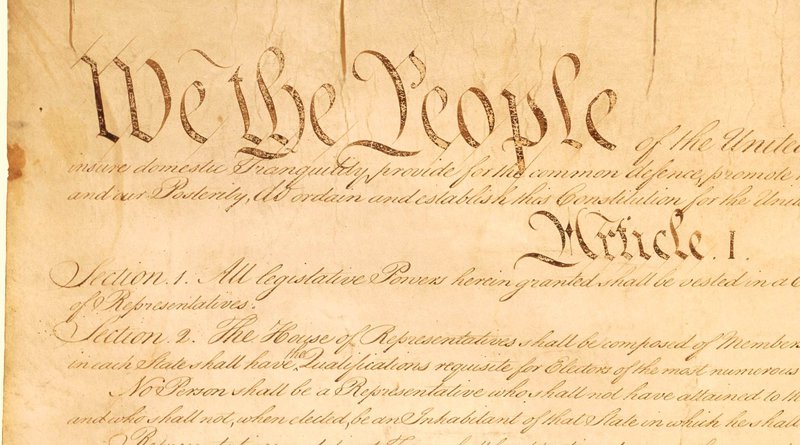FACTS AND SITES. MARTÍ CRESPO. NEW
marti.crespo@partal.cat
We the people
Constitute provides precise and up-to-date access to constitutions from around the world
It is not common for people to read constitutions. It is only in exceptional situations, such as that of Catalonia at present, that any consultation goes beyond the strictly juridic interpretation and normal, the wider contents are not studied by most people. Catalonia's sovereign process however, has sparked interest in studying the Spanish and other constitutions and been used in the development of constitutional proposals for a possible independent Catalonia of the futire. It is here where “Constitute” becomes an extremely useful tool.
Constitute was set up in 2013 thanks to the Comparative Constitutions Project and with funding from Google and the Indigo Trust, and is a web portal which contains the constitutions of nearly two hundred countries, all appropriately classified, labelled and translated into English (and from December some also in Arabic). The basic objective is to provide citizens with access to all constitutions and help those nations that are in the process of constitutional review. The website states: “New constitutions are written every year. The people who write these important documents need to read and analyse texts from other places. Constitute offers access to the world's constitutions that users can systematically compare them across a broad set of topics — using an inviting, clean interface.”
In addition to finding complete and up to date versions (HTML and PDF), the great advantage is that users can also systematically compare the hundreds of topics and subtopics or simply search for key words and concepts. The authors say the tool has been used in constitutional drafts for countries such as Libya, Myanmar and Nepal. However, one outstanding aspect is that not only legislators and jurists have access. Anyone at all can easily discover that the phrase “We, the people” that opens the United States, is also used in some 50 other magna cartas; that there is only one constitution in the world, the Bolivian, which guarantees the rights of nature (Pachamama), or, as highlighted on the home page, there is a direct and explicit reference to the cases of Catalonia and Scotland and that there are twenty-two constitutional texts in the world with provisions relating to the secession of a territory. For Catalan users there is also another point of interest. By simply using Google Docs, any group of people interested in putting together the framework of a possible constitution can easily select multiple items and pieces they like from other constitutions and export them to this office tool for collaborative management. In 2010, the Icelandic people who worked collectively to reform their constitution were not able to take advantage of this option. In 2015, Catalans will find this tool to be fully at their service.
Lawyer Amadeu Abril [blocs.mesvilaweb.cat/amadeu] recalled a few weeks ago on his blog the day, ten years ago, that ICANN [www.icann.org] approved the .cat [domini.cat] and with it, the world's first linguistic and cultural Internet domain. Shortly beforehand, the Scottish government had inaugurated the domain gov.scot [www.gov.scot], which from then allowed Internet users to access information from the administration instead of having to use the former Scotland.gov.uk [www.scotland.gov.uk].
Now, a decade after the appearance of the .cat domain, other cultural communities around the world have followed the move and declared their digital independence. The Basque [www.ejgv.euskadi.eus] and Galician [www.xunta.gal] governments, for example, have also adopted the format for their respective cultural communities, (.eus, .gal) and at the end of the year, websites of the regions of Alsace [www.region.alsace] and Brittany [www.bretagne.bzh], will be accessed with the specific domains and .alsace and .bzh, although in the latter, the user is redirected to the page with the .fr domain. The portal of the Welsh parliament [www.assembly.wales], meanwhile, is also active with the Welsh cultural and linguistic community domain, .wales, but the Welsh version, .cymru, is not yet working. On the other side of the Atlantic, the government of Quebec [www.gouv.quebec] is now accessiblewith the domain .quebec, although redirected to the URL with Canadian ending. Finally, the domains of the Flemish and Tyrolean cultural communities .vlaenderen [www.nic.vlaanderen] and .tirol [www.nic.tirol] are still in process.

